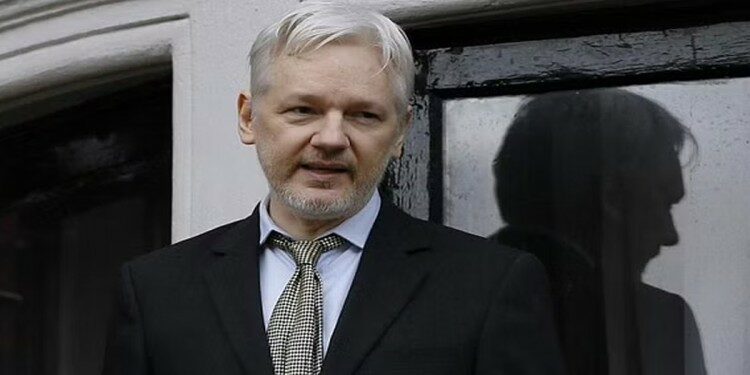In news– Recently, a London court has ordered the extradition of the WikiLeaks founder Julian Assange to the United States.
More about the issue-
- The recent order to extradite Assange, who is being sought by the US, is in connection with charges under the Espionage Act.
- Assange has been wanted by the US since 2010 when WikiLeaks released nearly 4,00,000 documents called the Iraq War Logs from the US Department of Defense databases by the intelligence analyst Bradley Manning (who later referred to herself as Chelsea), who acted as a whistle-blower.
- The video showed the helicopter crew firing indiscriminately and killing civilians and two Reuters war correspondents.
- While the WikiLeaks portal was maintained and sustained by hundreds of volunteers, the site was represented publicly by its founder and director Julian Assange.
- The Barack Obama administration started investigation of the Manning leaks, and Manning was convicted by court martial in July 2013 for violating the Espionage Act and underwent rigorous imprisonment before her sentence was commuted in January 2017.
- However, the administration had decided that it would not pursue criminal charges against Assange and WikiLeaks.
- Later former President Donald Trump charged Assange of collaborating in a conspiracy with Manning to crack the password of a Defence Department network to publish classified documents and he was indicted on 17 new charges related to the Act.
- Assange waged a prolonged legal battle against his extradition following his arrest in London in 2019, after he spent seven years holed up inside the Ecuadorian Embassy in an effort to avoid detention.
- After then Ecuador President Lenin Moreno revoked his asylum and his citizenship on April 11, 2019, following Assange’s disputes with Ecuador authorities, he underwent imprisonment for 50 weeks for bail violations during his refuge at the Ecuador Embassy in London.
- Now a London court has ordered the extradition.
Extradition of Vijay Malya and Nirav Modi-
- During his recent visit to India, the British prime minister said that the United Kingdom has ordered the extradition of Vijay Mallya and Nirav Modi.
- Mallya and Nirav Modi allegedly defrauded banks of tens of thousands of crores.
- Nirav Modi and his wife Ami fled India in 2018 as soon as the massive public sector bank fraud came to light.
- He was arrested a year later and is currently in London’s Wandsworth Prison, from where he has appealed his extradition.
- Vijay Mallya, a liquor baron who also owned the now-defunct Kingfisher Airline, has been in the UK since 2016 and is wanted in India over alleged fraud and money laundering charges.
- In 2019, then UK Home Secretary Sajid Javid signed an extradition order.
India and Extradition laws-
- In India, the extradition of a fugitive criminal is governed under the Indian Extradition Act, 1962.
- This is for both extraditing persons to India and from India to foreign countries.
- The basis of the extradition could be a treaty between India and another country.
- According to section 2 (c) of The Indian Extradition Act, 1962, “extradition offence” means ‘the offence must be provided in the extradition treaty and should be punishable with imprisonment for a term which shall not be less than one year under the laws of India or of a foreign State and includes a composite offence’.
- Extradition treaties are traditionally bilateral in character.
- The extradition applies only to such offences which are mentioned in the treaty.
- It applies the principle of dual criminality which means that the offence sought to be an offence in the national laws of requesting as well as requested country.
- The requested country must be satisfied that there is a prima facie case made against the offender.
- The extradition should be made only for the offence for which extradition was requested and the accused must be provided with a fair trial.
- The legal basis for Extradition with non-Treaty States is provided by Section 3(4) of the Indian Extradition Act, 1962, which states that the Central Government may, by notified order, treat any convention to which India and a foreign state are parties, as an Extradition Treaty made by India with that foreign state providing for extradition in respect of the offences specified in that Convention.
- Extradition can be initiated in the case of under-investigation, under-trial and convicted criminals.
- In May 2011, the Indian Government ratified two UN Conventions – the United Nations Convention against Corruption (UNCAC) and the United Nations Convention against Transnational Organised Crime (UNCTOC) and its three protocols.
- India is also a party to the 1997 International Convention for the Suppression of Terrorist Bombings that also provides a legal basis for Extradition in Terror Crimes.
- Currently India has an Extradition Treaty with more than 40 countries.
















